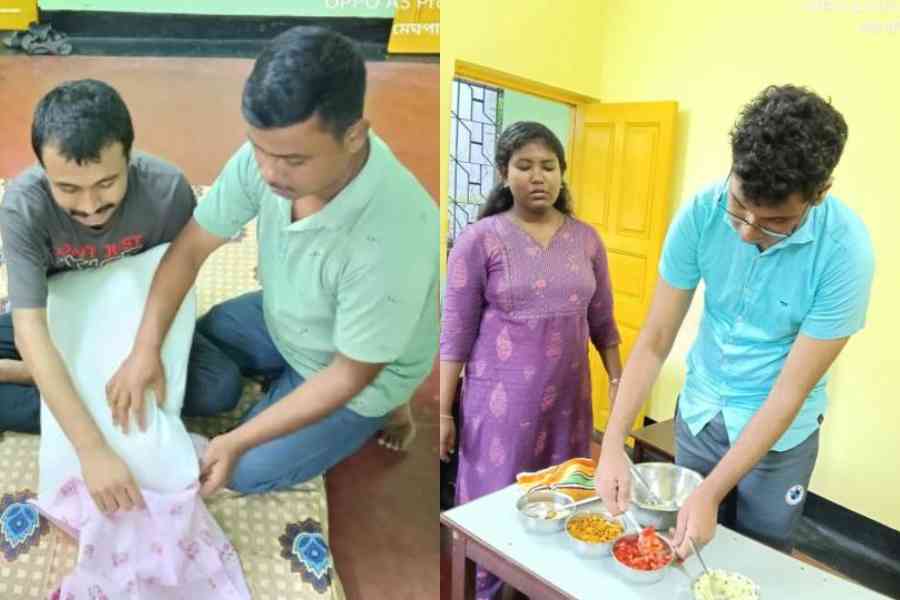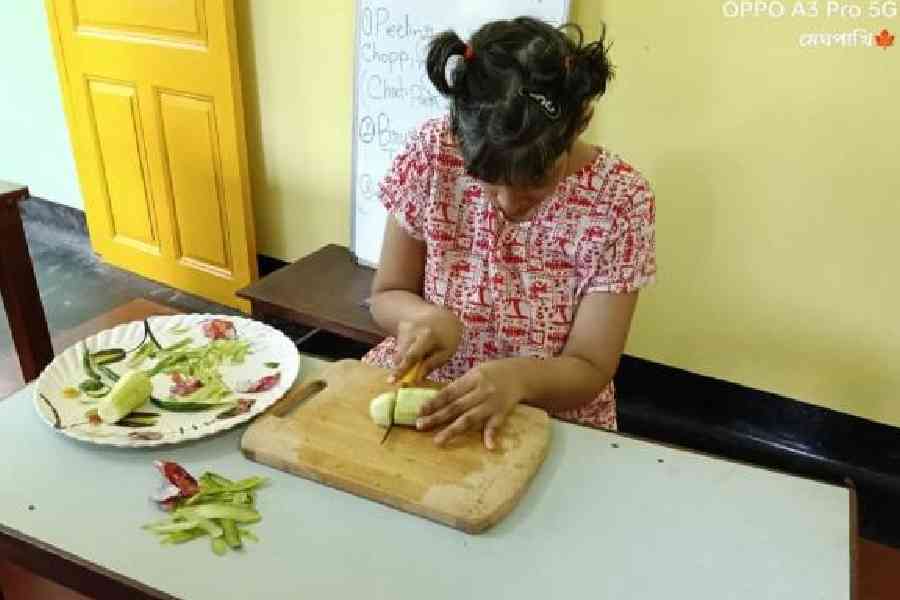A centre for autism has started training individuals with autism on home management and community-based skills.
Each chore, such as peeling a cucumber, making a bed or knowing how to use a washroom, make them more confident, help them to be independent and lead a life of dignity.
Being unable to do chores on their own develops a sense of anxiousness in them.
Several organisations urge parents to train their children with autism. But, often at home, parents or caregivers complete the task for their children to save time.
The result: The individuals become more and more dependent on their parents or caregivers.
“This is about learning to do the chores at home without any help. It will be followed up with more interaction with the community like visiting banks, clinics and hospitals,” said Indrani Basu of Autism Society West Bengal.

Individuals with autism learn basic chores at the training
The centre started the training programme during its summer vacation.
Basu said that the learning would help them finish a task by themselves instead of seeking help from others.
For example, some individuals can take a bath but they don’t know how to dry themselves. “That has to be taught,” she said.
If they are hungry, they should know how to make a sandwich or instant noodles.
“Knowing how to use the washroom would reduce the chances of abuse as well. Being too much dependent on caregivers makes them more vulnerable,” said Basu.
“Being able to take care of themselves reduces their anxiety because they know to attend to their needs without waiting for someone to help them,” said Basu.
Depending on others for minor and daily chores can be a trigger for aggression, said Basu.
The training is being done in a separate house and not the centre. The house is a reflection of a home environment.
“The learning thus is not clinical or rushed but in an environment that they are used to,” a teacher said.
The classes are being held in two batches — from 10am to 1.30pm and from 2pm to 4pm. Individuals who are not part of the centre can also attend the classes.
The individuals are being taught to shave, wash their faces, hands, how to pat themselves dry, make a cup of tea, put pillow covers and other activities.
“Individuals with autism have varying degrees of abilities and therefore, the time taken by one individual to learn a chore will vary from that of another,” said Rajkumar Bera, special educator.
“When they can do their chores, it helps the parents, too. It also gives parents some time to spare for themselves, which is very essential,” said Bera.











